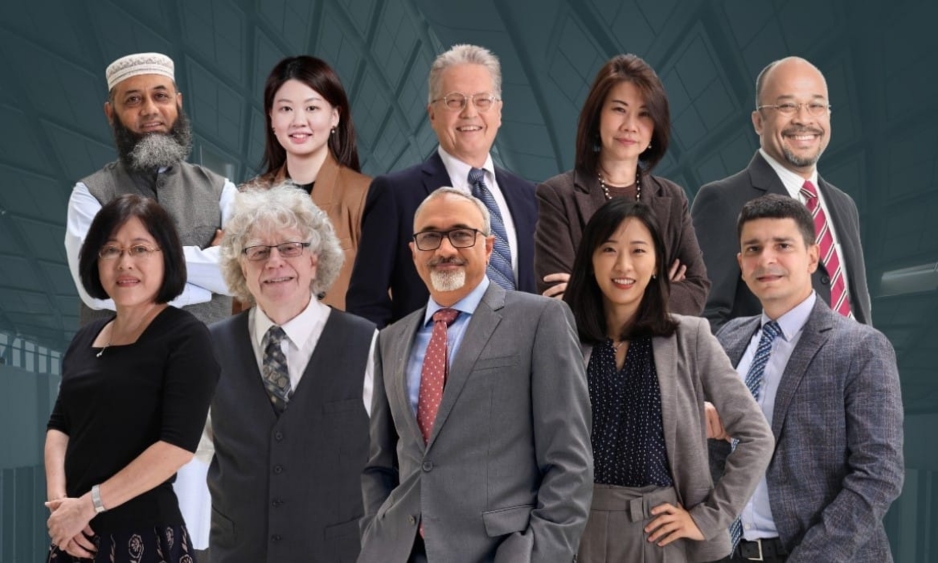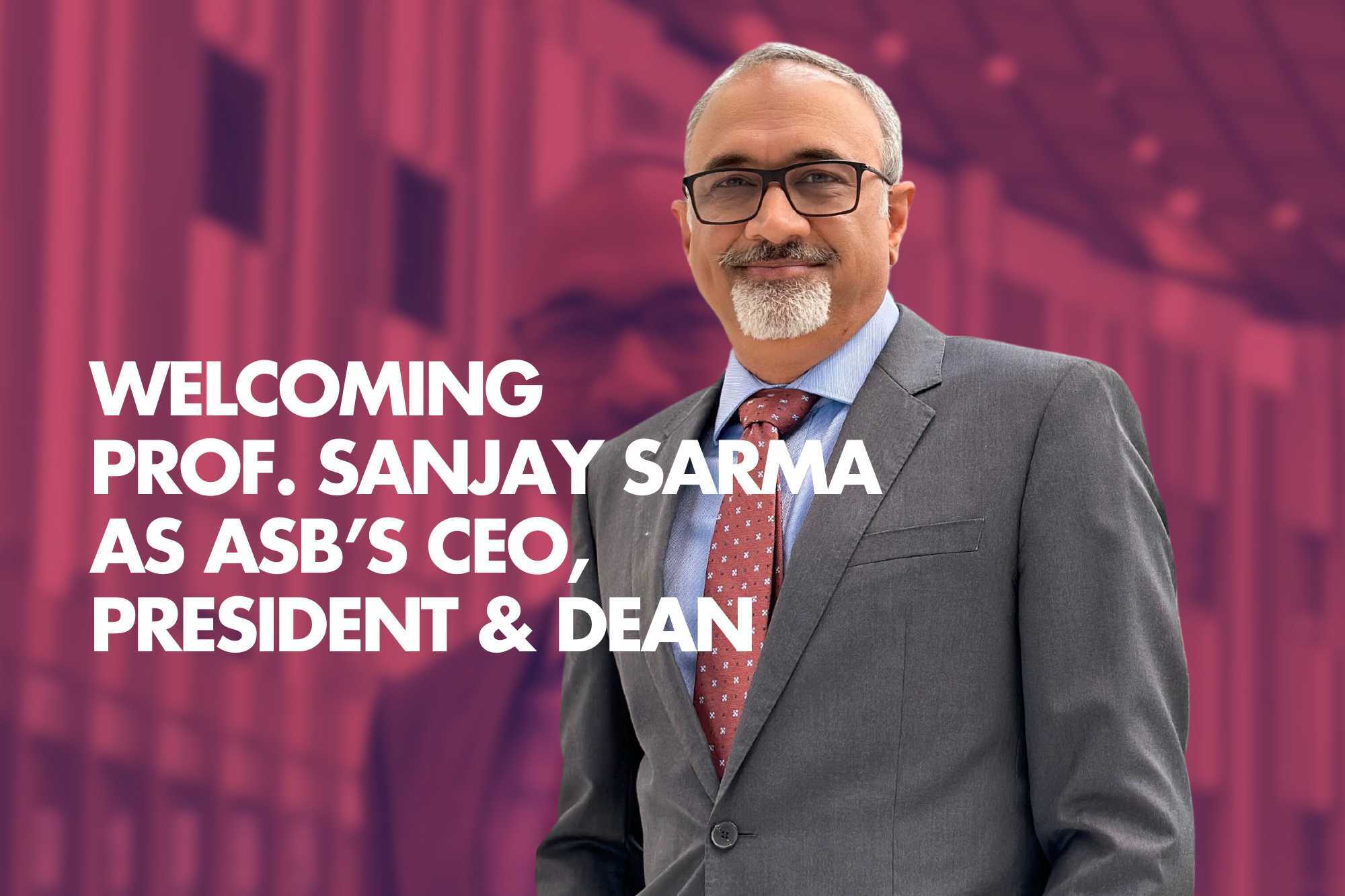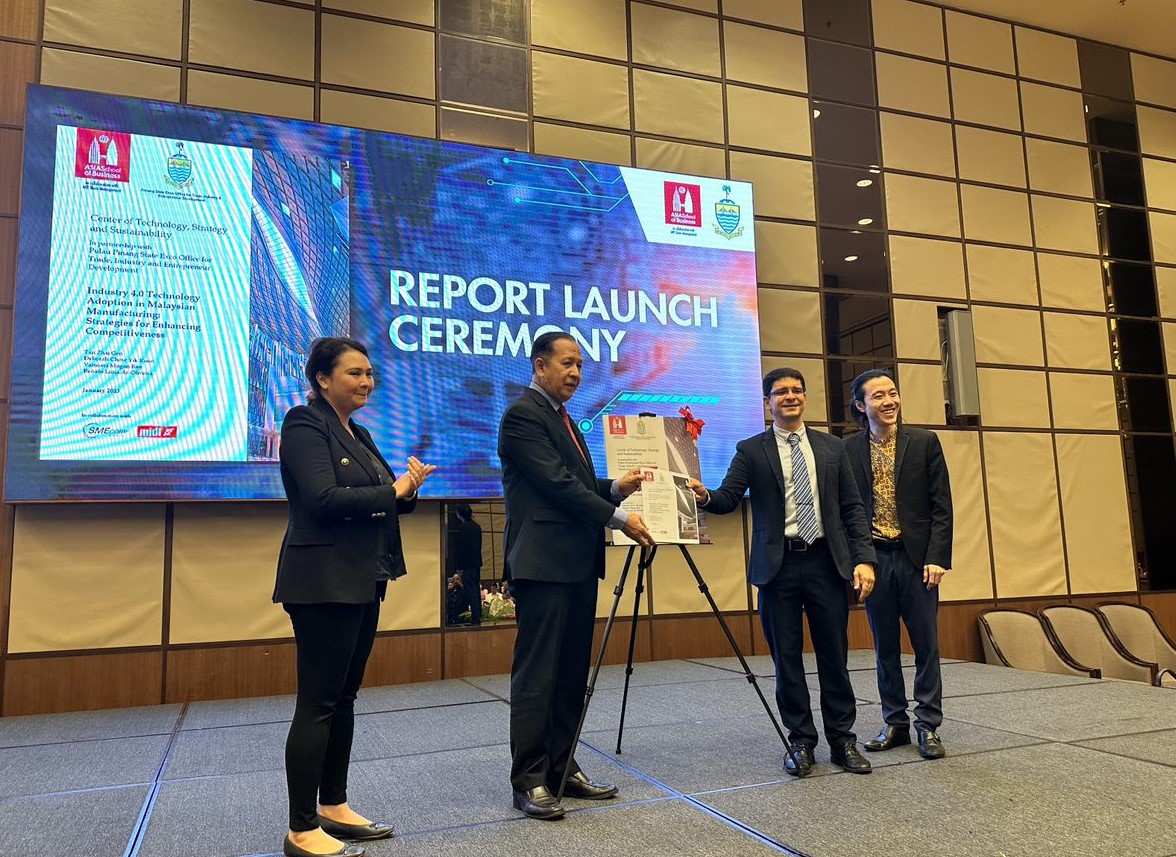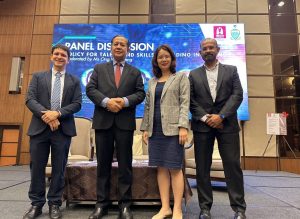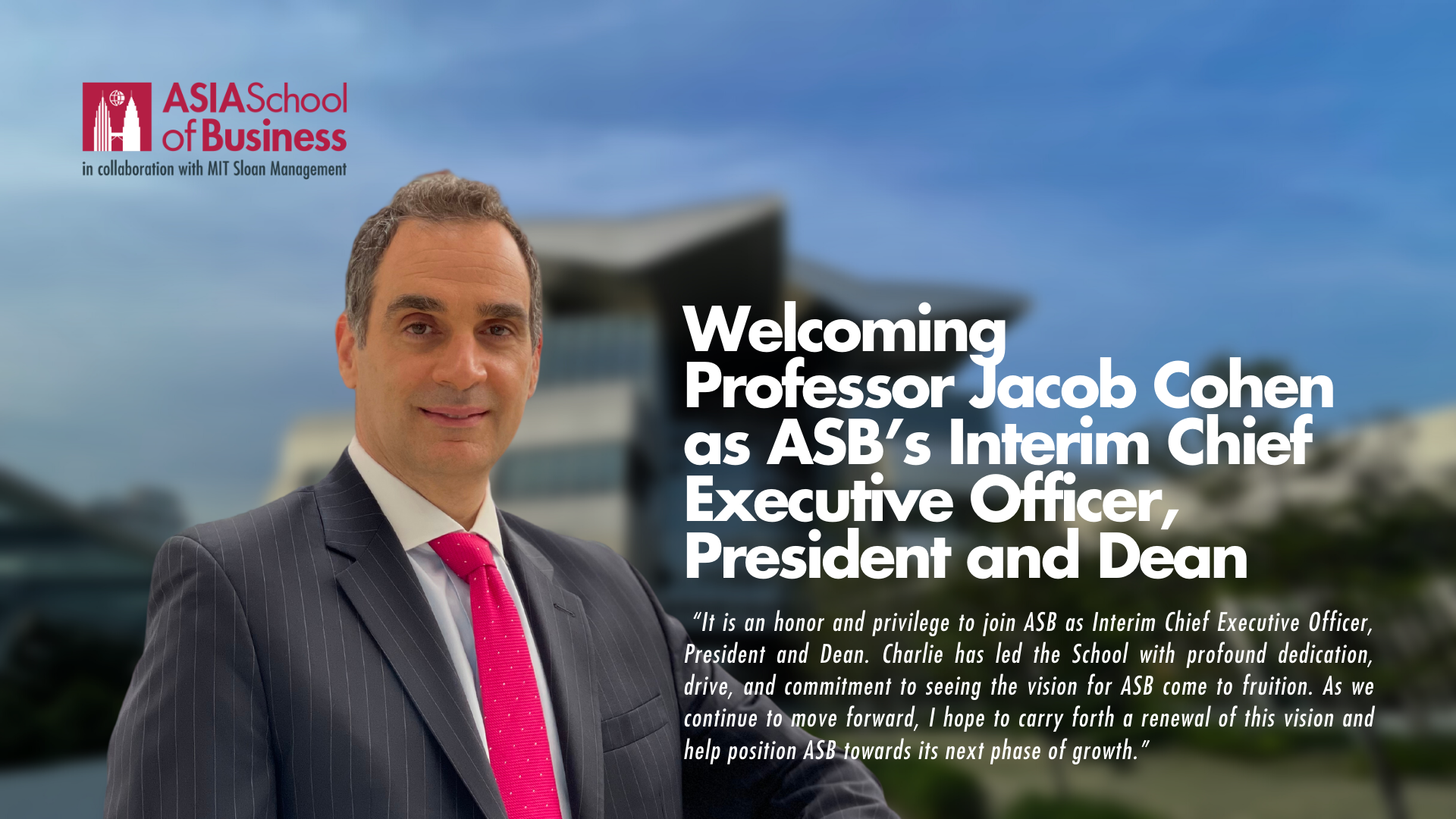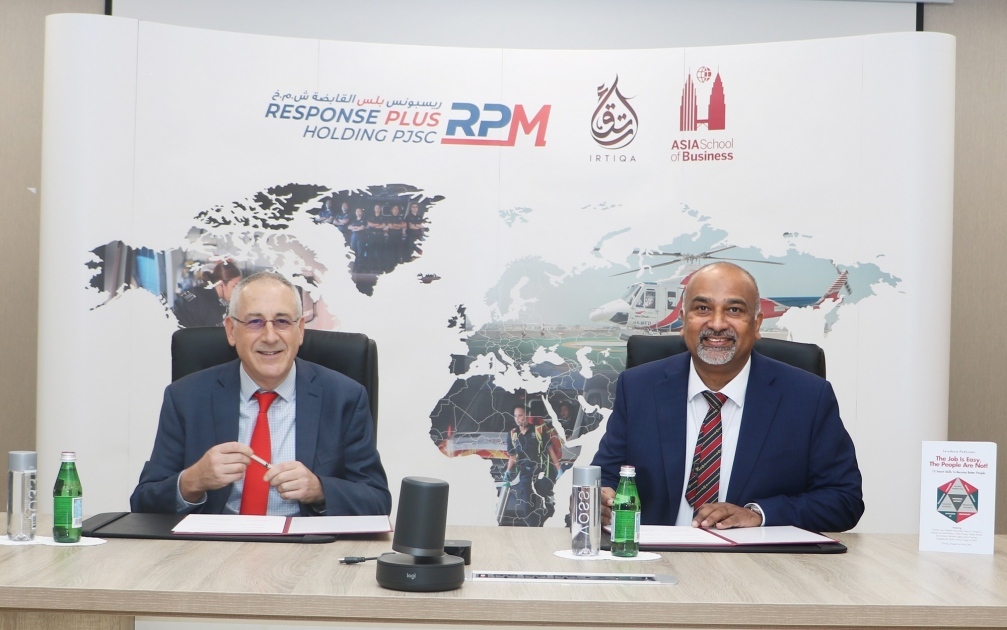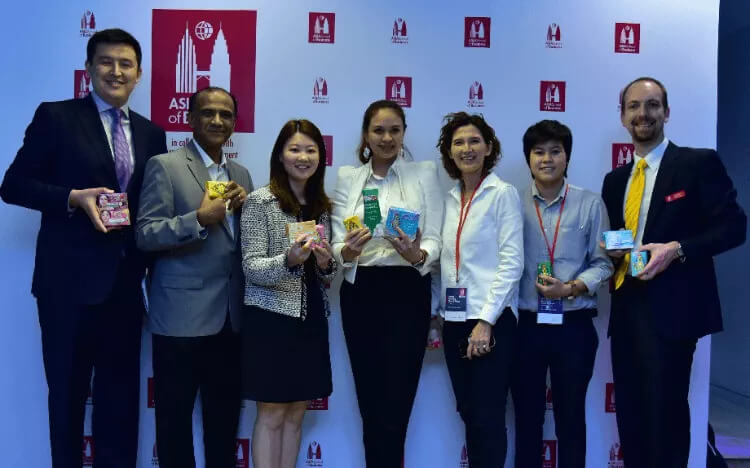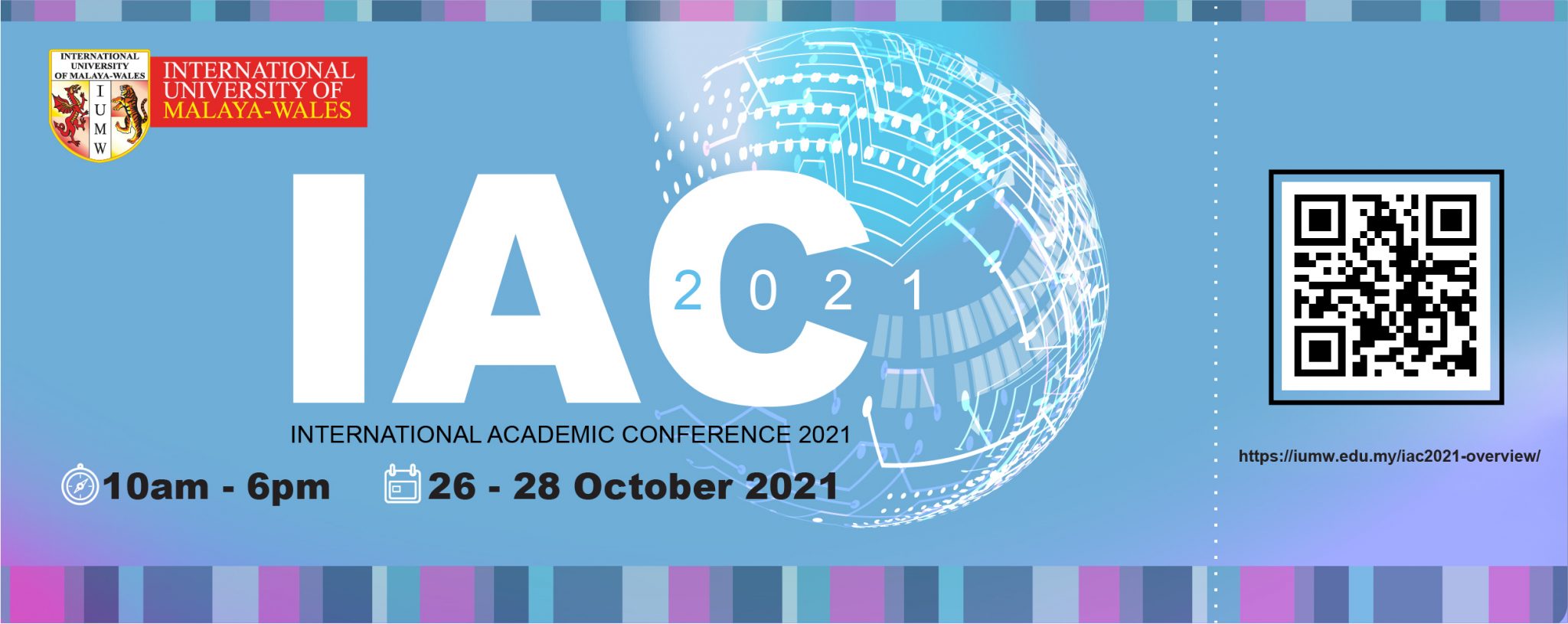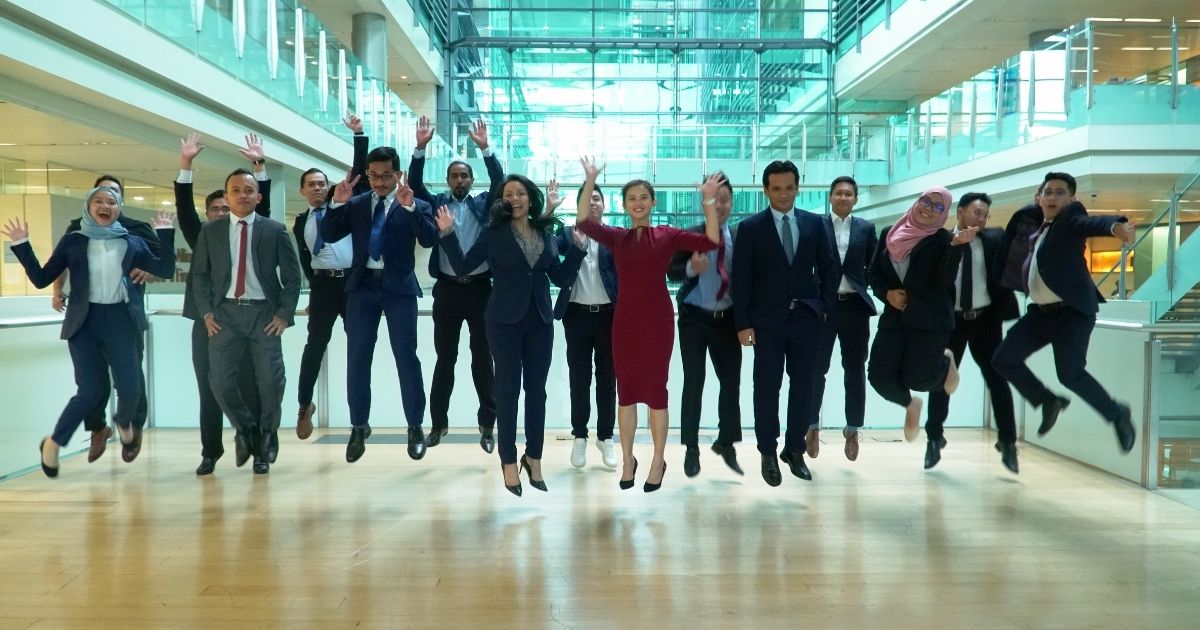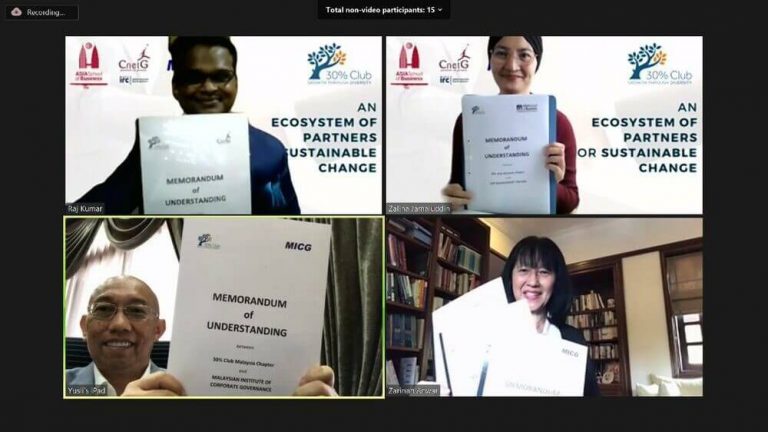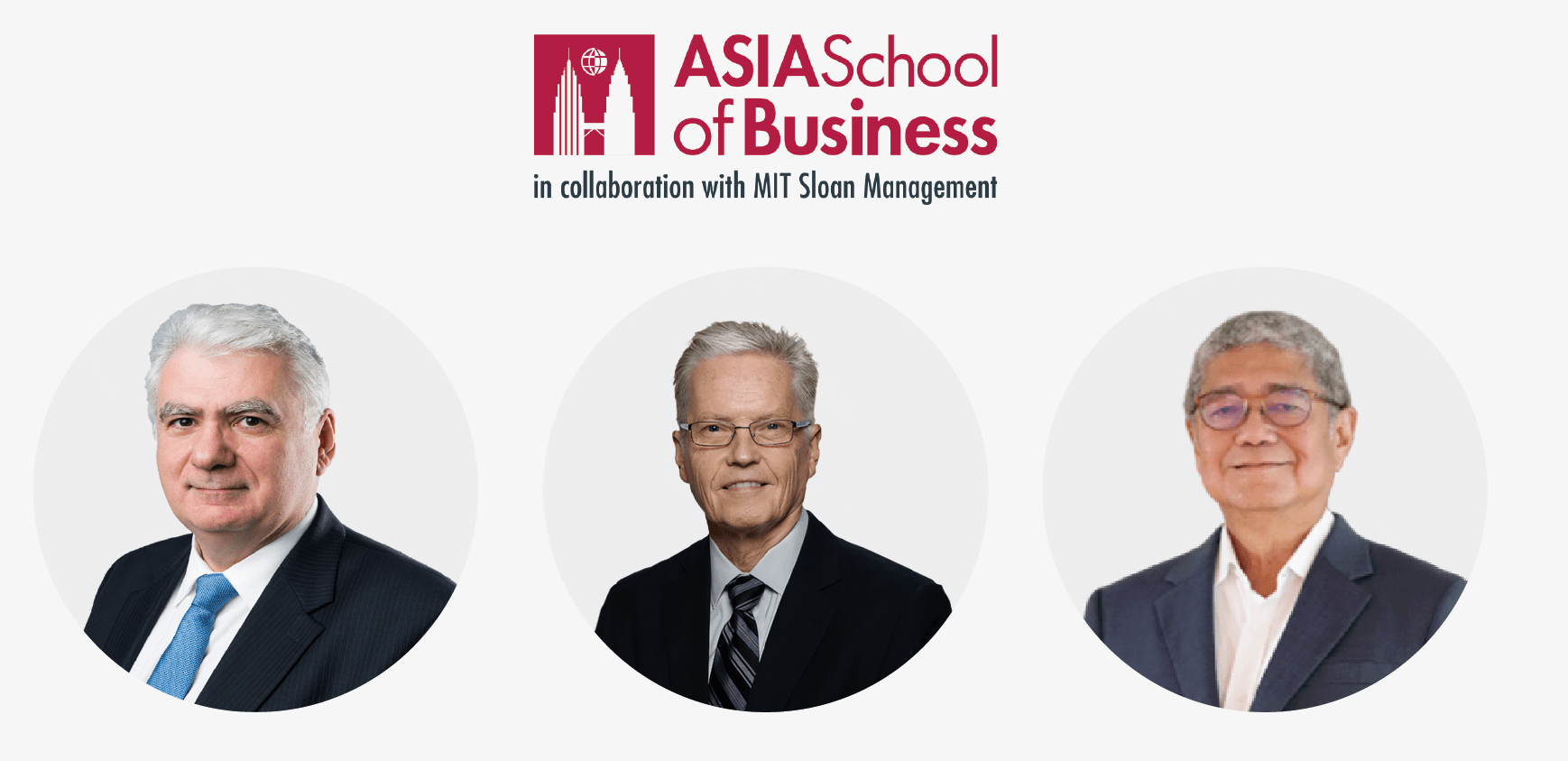It gives me great pleasure to be here with you on this most joyful of days. Let me begin by congratulating Professor Sanjay Sarma on his investiture this morning as the President, Dean and CEO of the Asia School of Business. Moreover, I would like to express my heartfelt congratulations to you all, the Asia School of Business MBA and MBA Working Professional Class of 2023. You have all worked very hard.
You have taken on the challenge of one of the most rigorous and action-packed MBA programmes in the world, and you have risen to that challenge. You should all be very proud, and I know that your faculty, your tutors, your friends, your family and other loved ones, are all immensely proud. On this special day, it is important that we take a moment to celebrate not only your incredible achievements as graduates, but also the love and support of friends and family who have made it possible.
None of us can succeed alone. My own experiences as a student showed me that all degrees are, to some extent, a team effort. Whether it is the patience of a professor who explained that tricky concept again and again until it finally made sense; the generosity of a friend who shared their lecture notes with you on a day you were unwell or during an essay crisis; or the encouragement of a family member who believed in you even when you didn’t quite believe in yourself.
It is the kindness and support of others that makes our own achievements possible. Today we all celebrate together, with you, the graduates, as the stars of this happy occasion. But from tomorrow, you will be thinking again about your next steps, and about how you will be applying your talents, skills, and qualifications – now immeasurably enhanced by your MBA – to the world.
As the pioneering twentiethcentury entrepreneur Henry Ford put it: “A man’s” – and we must add, “a woman’s” – “college and university degree mean nothing to me, until I see what he or she is able to do with them.” This commencement address, however, feels a little different from others. This is because all of you, in order to get to this point, have already made a real-world impact.
The uniquely brilliant degree programme that you have undertaken in this Business School requires you to spend around one third of your time learning on the job. This has allowed you to gain practical experience through real-life business projects hosted by companies all over the world, from Mexico to Mauritius, from Switzerland to Singapore. So unlike many other graduates entering the world of work, you have already put your academic theories into practice.
Problem-solving, team-working, cooperation, leadership, and even compromise: these vital skills cannot be taught in lecture halls and seminar rooms alone, and you have gained valuable lessons in all these through your practical experience. Whatever your next steps are, I can say with the utmost confidence that your future employers and colleagues will be very fortunate.
When they hire you, they will be taking on graduates with not only knowledge – the so-called ‘hard skills’ – obtained through rigorous study. But you have also acquired those all-important ‘soft skills’, which can only be developed through practical application. This Asia School of Business ethos that I am championing here – of academic study combined with practical application – is actually enshrined in the official motto of MIT, Mens et Manus.
This Latin motto encapsulates the belief that both the mind and the hand must be cultivated and refined through education, entailing both thinking and doing. This stands in perhaps rather deliberate contrast to the motto of MIT’s neighbour on the Charles River. Harvard’s motto is simply Veritas, or, ‘Truth.’ And while I remain deeply loyal to my former school, I have to say that, in this day and age, MIT’s motto and ethos feels especially resonant.
Translating knowledge – and, indeed, truth as well – into positive real-world impact, has perhaps never been more important. But friendly college rivalries aside, why is this the case? Why is it that more usable, hands-on skills are so important at this moment in our history? On some level, the application of knowledge has of course always been the most cherished purpose of education.
As twentieth-century British Prime Minister, Sir Winston Churchill declared: “the first duty of any institution is to teach wisdom, not trade; character, not technicalities.” In other words, the specific knowledge being imparted is far less important than the skills being developed while acquiring it. But I do believe that soft skills are, at our present moment, more important than they have ever been before.
Now more than ever, we must understand better in order to act effectively, and we must act urgently. The world is changing at an unprecedented rate, creating amazing opportunities, but also generating enormous risks. The present unsettled global financial and political situation means that the business world is also facing even more uncertainties than usual.
Many organizations are shrinking, disappearing, or else radically transforming in order to stay afloat. At the same time, new developments in technology, such as Artificial Intelligence, and especially generative AI, are also unfolding. This unpredictable process is rapidly rendering existing jobs obsolete, while the fast rate of change means that previously unheard-of jobs are also being created.
The world of work will undoubtedly change radically as a result. In the post-pandemic era, various hybrid forms of work are already here to stay, while other high-tech adaptations are on the horizon, from business meetings in virtual reality; to AI-driven customer service agents; to marketing in the metaverse. Your generation and beyond will inhabit these as yet un-imagined worlds of technological innovation, which may be quite alien to those of my generation and before.
This past year has witnessed a development perhaps as seismic as the harnessing of electricity for human use was in the nineteenth century. I am talking about ChatGPT and the other generative AI tools, which emerged very recently, and are being hailed as both our saviour and our downfall. These tools will certainly massively boost our productivity as humans, saving us time, and creating multiple efficiencies across all kinds of processes, let alone helping to spark ideas for anyone struggling with a writer’s block.
But they will also reshape so many aspects of our lives beyond the workplace, in unprecedented, and, yes, unsettling ways. And as far as generative AI goes, especially in combination with other advancing elements of the Fourth Industrial Revolution, this is only the beginning. So while this changing landscape presents exciting opportunities, with challenges in need of solutions, and so many discoveries and innovations waiting to be made, it is also daunting.
It will require members of the workforce of tomorrow to be inventive, proactive, adaptable, in ways never demanded before. Let alone being digital natives, these workers – including yourselves – will be natives of artificial, augmented, and virtual worlds, using technology both existing and yet to be created. I am reassured, in this regard, when I look out across this auditorium today.
For, with the skills and experience you have acquired during your time on this MBA programme, I am confident that each and every one of you is ready to rise to the challenges of the future. For in addition to the academic and practical skills you have acquired during your studies here, you have also learned something else, perhaps even more valuable.
For what I admire the most about this MBA programme, is the way that it sends its students to participate in projects all over the world, working with all kinds of different people, with different languages, cultures, religions, and life experiences. What this fosters, I believe, is the invaluable quality of empathy. Through these diverse experiences, you have learned to listen, to understand, and to treat difference with respect.
And as well as boosting your emotional intelligence, this has also helped to strengthen your ‘cultural’ intelligence. Empathy and cultural understanding are both so important in our world today. This is because while in many ways we have never been more connected by technology, transport, and through all kinds of business and personal links and networks at the same time, humanity is still plagued by so many divisions.
And at the same time, we are facing many uncertainties and grave risks, from AI, from geopolitics, and from the impacts of the climate crisis. To steer humanity through these challenging times, what we need perhaps even more than the excellent understanding of business attained through your MBA programmes – is compassion; togetherness; and above all a sense of global community.
We need to be aware of this community as perhaps never before – extending our concerns and applying our responsibilities not only to the rest of humanity, but to all other living creatures in the world, and to the planet itself. So I hope that all the different people you met as part of your MBA experience will stay with you as you take your next steps.
Do remember them, as you strive in all you do to build a kinder and stronger world, to help ensure a brighter and more united future for us all. And remember also your broader responsibilities, to our common world. This entails, above all and at all times, serious consideration of the ethical implications of your actions and choices. Such an approach has already become far more integral to business practices than it was in the past, as part of the concept of stakeholder capitalism.
Now, as well as ESG considerations, it is also imperative to take seriously the ethical implications of the latest technological advances. Not only those posed by generative AI, but also those of existing ICT and other technological developments as well. We must make sure that tackling these issues head-on becomes an equally integral part of the business world as corporate governance, for example, already is.
So empathy, and ethics; practical hands-on skills; as well as an academic grounding in business – these are all part of the legacy you are taking with you from here, as you graduate. Now, as well as issuing an urgent call to action, I understand that commencement speakers typically offer their graduating audiences some words of advice, some piece of wisdom gathered on their own life journey.
Just last month, the Academy Award winning actress, Malaysia’s own Michelle Yeoh, delivered a magnificent address to the Harvard Law School Class of 2023. In it, she drew on her own experience of moving unexpectedly from a career in dance to a career in film – of taking on industry barriers and death-defying stunts – to offer the graduating students some sage advice on “how to survive the fall” and get back up again.
Unfortunately, ladies and gentlemen, I have never taken on any action movie stunts myself! So, if you want to learn about falling and bouncing back, whether metaphorically or physically, I urge you to look up Yeoh’s wonderful speech. And indeed, I puzzled for some time over what words of wisdom I might offer you. After all, as I have observed throughout this speech, you have all already ventured out there, into the real world.
You have a head-start on so many students graduating from degree programmes this year, and I don’t feel that you need me to tell you how to be resilient, proactive, or adaptable; I won’t presume that I know any more about this than you already do! So instead, after much deliberation, I have decided to offer you this small piece of guidance that resonates with my own life’s journey: keep learning!
And while today may, for many of you, mark the end of your formal education, I want to end by reminding you that there are always new skills to develop, and new discoveries to be made. So do keep learning as you continue your journey from here, and don’t ever close off your imagination to new discoveries and opportunities. Stay interested; stay engaged; and stay curious.
And remember that, even after centuries of revolutionary, high-tech inventions – after electricity, the internet, and now ChatGPT – the human mind remains the most powerful tool on the planet. And while you keep seeking the truth through life-long learning, do also make sure to take actions as well. It is truly a pleasure to share this special day of graduation with you.
In many ways – though the world has changed so much in the intervening years – today has taken me back to my own days as a graduate student. I did my graduate studies at the John F. Kennedy School of Government. And it is with some words from his younger brother, Robert F. Kennedy (d. 1968), that I wish to close today. It will be a long time, perhaps, before AI matches the eloquence of the truly educated and compassionate human mind.
And so, I decided I would end by turning to the past rather than the future, and quoting some uplifting words from a commencement address that Robert Kennedy gave in the year of his brother’s assassination. He said:
“I suspect there may always be arguments about what constitutes a higher education, but wise men through the ages have at least been able to agree on its purpose. Its purpose is not only to discipline and instruct, but above all to free the mind – to free it from the darkness, the narrowness, the groundless fears and self-defeating passions of ignorance.
And so, perhaps, it’s not too much to say that what we are celebrating here today is the liberation, the setting free of your minds. From now on you have earned the right to do your own learning, to develop your own insights and draw your own conclusions, to conduct your own explorations in the life you find around you. Your minds have been free”.
And on that note, I want to wish you the very best in all your future endeavours, whatever forms they may take, as you set out into the challenging, but also rewarding world that awaits you.





